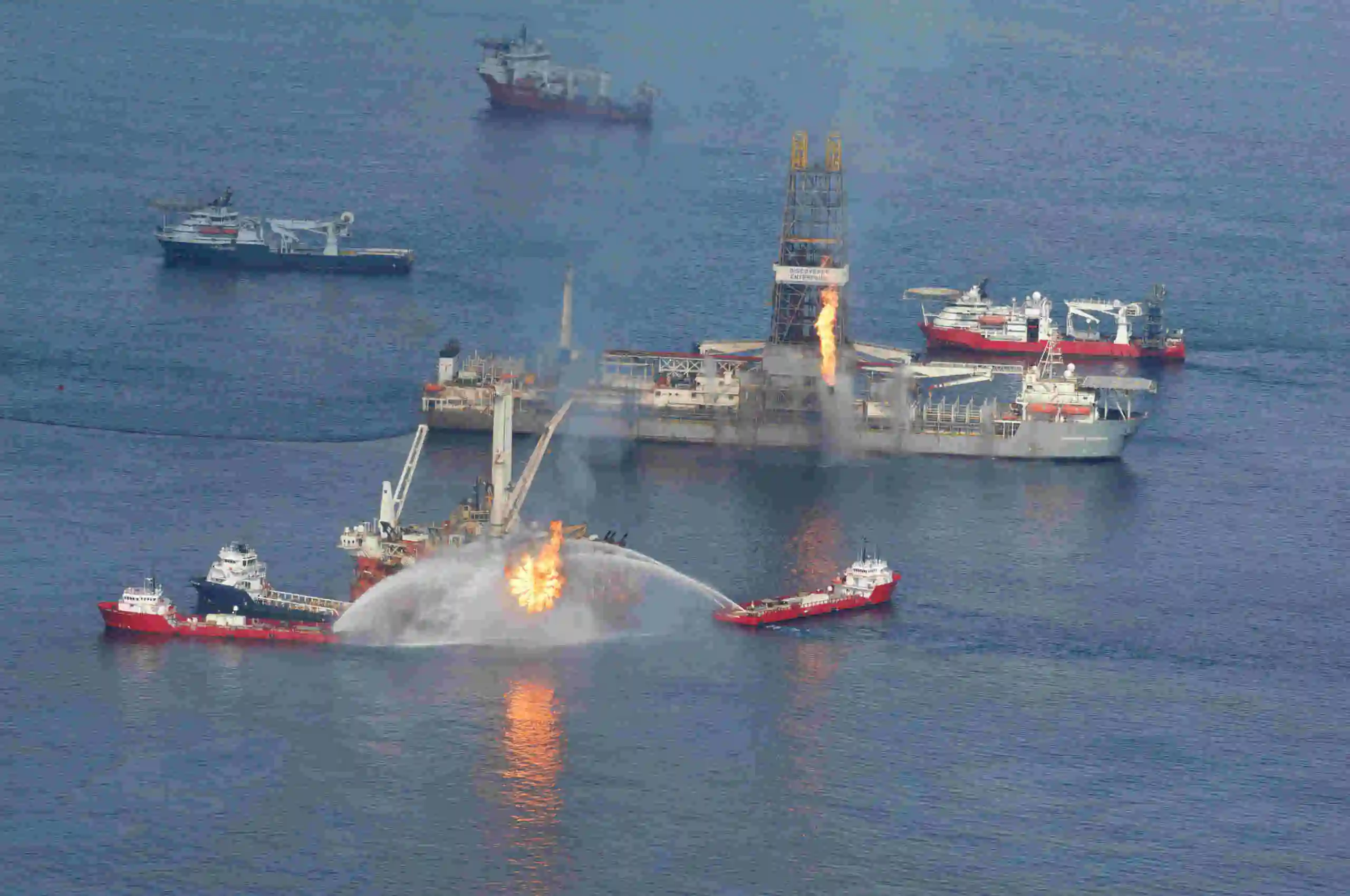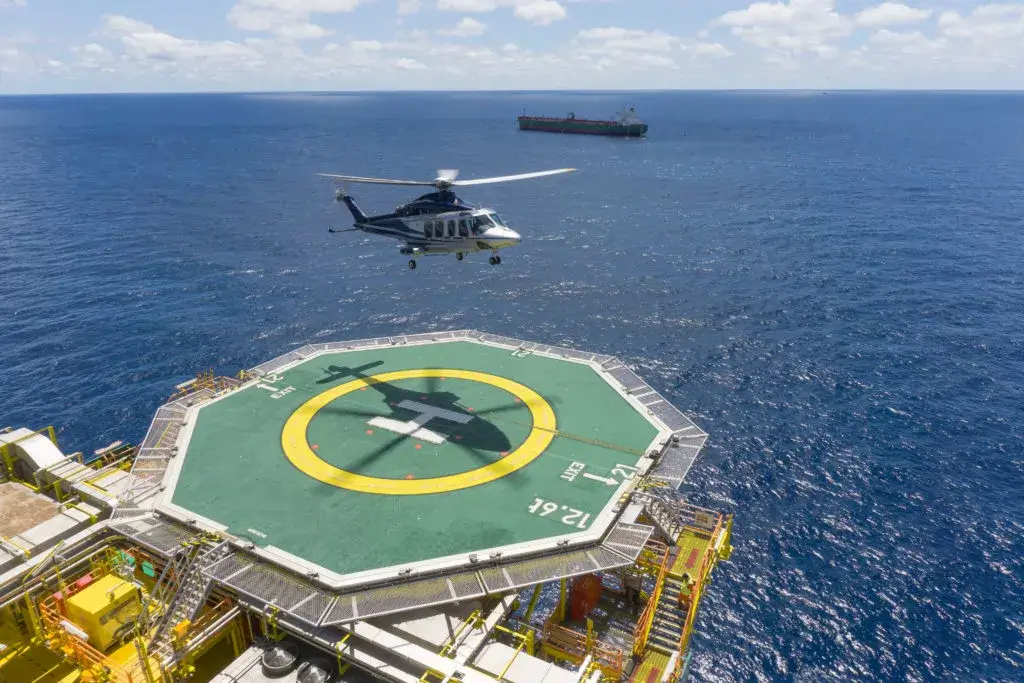Working on an oil rig is an exciting and rewarding career path. However, as you probably know, there are also common oil rig dangers to watch out for on every front.
Table of Contents
ToggleEven if you’ve avoided oil rig accidents and injuries in the past, you never know what the future could bring. It’s important that you continue to take every step possible to protect yourself when working on an oil rig.
This starts with understanding the most common dangers when working on an oil rig.
Here are five oil rig dangers that answer the questions, “why are oil rigs dangerous?” and “why is working on an oil rig dangerous?”
Danger 1. Physical demands & risky environment on an oil rig
Oil rig work isn’t what you would classify as an “easy” job. It’s difficult enough getting to and from the rig. When you add in the physical demands of completing your job, you’re always at risk of injury.
For example, slippery surfaces increase the risk of a slip and fall. The same holds true of heavy equipment, objects, and debris crowding your workspace. And that doesn’t even take into consideration inclement weather.
On top of all this, you put a great deal of trust in your oil rig employer. You assume that they’re completing federal oil rig safety inspections to reduce the risk of drilling rig accidents.
Danger 2. Chemical exposure on an oil rig
Oil rig workers don’t always think about this, but chemical exposure can cause both short and long-term health problems.
Working in the oil and gas industry means coming in close contact with many potentially dangerous substances and chemicals, including but not limited to fluids used in heavy machinery and the oil itself.
Chemical exposure can cause damage to your body in various ways, ranging from breathing and lung issues, burns, and organ damage.
Danger 3. Fire and blowouts on an oil rig
If you’re familiar with the Deepwater Horizon explosion, you’re well aware of the accident risks associated with fire and blowout dangers on an oil rig.
These common oil rig accidents are a concern due to all the flammable materials aboard the rig.
For example, if a leak happens close to the flammable material, a fire or blowout is a possibility. This is in addition to environmental conditions that can cause trouble.
Fire and blowouts both have the potential to cause serious injury and fatalities.
Danger 4. Machinery accidents on oil rigs
The Texas maritime oil and gas industry requires the use of heavy-duty machinery to extract oil—and that’s just the start of how this dangerous equipment is used.
Even if you’re trained on how to best use this machinery, you never know when something could go wrong. The machine could malfunction, you could make an error, or a co-worker could make a mistake.
Tip: Don’t attempt to use any machinery for which you haven’t received the proper training. This puts you and everyone else on the oil rig at risk in addition to the daily common dangers already present.
Danger 5. Transportation accidents on oil rigs
Transportation to and from oil rigs can be just as dangerous as the job itself.
Boats and helicopters are relied upon to transport workers from land to the oil rig. Should something go wrong, such as a capsized boat or rough waters due to an impending storm, the end result could be serious injury or even death.
Information from the Centers for Disease Control and Prevention (CDC) discussing fatal injuries in offshore oil and gas operations explain:
How dangerous is working on an oil rig?
“During 2003–2010, the U.S. oil and gas extraction industry (onshore and offshore, combined) had a collective fatality rate seven times higher than for all U.S. workers (27.1 versus 3.8 deaths per 100,000 workers). The 11 lives lost in the 2010 Deepwater Horizon explosion provide a reminder of the hazards involved in offshore drilling.”
Oil rig crews face some of the highest rates of injuries and fatalities. In 2008, 120 oil and gas industry workers died on the job.
According to OSHA, the number of workers killed from 2003 to 2010 was 7x higher than that of all other industries in the U.S.
A recent report from the Center for Public Integrity found that 1,566 workers died in the oil and gas industry between 2008 and 2017. That is more deaths than many industries combined during the same period.
Common types of accident injuries resulting from oil rig dangers
There is no shortage of injuries that you can suffer on an oil rig. Much the same as any other occupation, you never know what could go wrong and how your body will react.
Here are some of the most common types of oil rig accident injuries:
- Brain and head injuries, ranging from concussion to traumatic brain injuries (such as bleeding on the brain)
- Broken bones
- Loss of limb
- Burns, scrapes, and rashes
- Allergic reactions
- Spinal cord injuries, including paralysis
- Deep lacerations
As you can see, some of these injuries are more serious than others.
For example, if you suffer a scrape or burn, you may be able to treat it on the spot and continue with your day.
On the other hand, if you suffer a brain or spinal cord injury, you could soon realize you’ll never again work on an oil rig.
Should you suffer an injury at work from any of the oil rig dangers listed above, regardless of how serious the injury seems in the moment, report it to your employer and do whatever it takes to receive immediate medical treatment.
Once you understand your injuries, treatment plan, and long-term recovery plan, you can take the next steps to pursue maximum compensation for your damages.
Houston offshore rig explosion lawyers experienced in oil rig dangers & accidents
The oil industry is one of the most dangerous occupations for many hard-working Texans. But don’t let yourself be another tragic statistic. If you suffered an accident resulting in injuries from any of the five oil rig dangers above, seek representation from the Houston oil rig accident attorneys at Johnson Garcia LLP.
With over 30 years of combined experience, our oil rig accident lawyers have deep knowledge of the oil rig dangers that workers face every day. They understand the complicated laws surrounding the oil & gas industry and will fight aggressively to get you the maximum compensation you may deserve. Contact Johnson Garcia LLP online or give us a call to schedule your free consultation.



